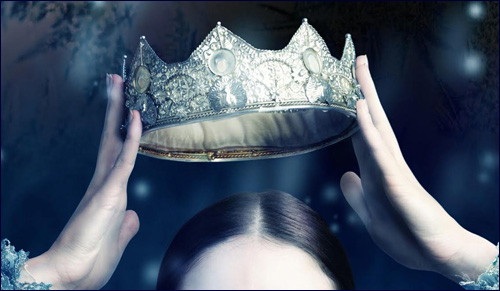 Iran’s Attack on Israel
Iran’s Attack on Israel


5 min read
Queen Esther’s transformation from a passive, quiet young lady to an active, courageous heroine.
When you think of a queen, what comes to mind?
Perhaps power. Maybe words such as decisive, independent, firm. A head of state. A strong voice.
But the Esther who arrives at the royal palace is none of these things. This Esther was orphaned at a young age and was raised by her relative Mordechai who treated her as a daughter. This Esther is an obedient woman who listens to Mordechai’s voice and carries out his requests, not veering from his instructions one iota (1). Esther had no desire to be queen; she was taken against her will to the King’s harem to participate in a beauty contest. Even after Esther is chosen from many maidens to be the Queen of Persia, the Book of Esther relates that Esther carried out the bidding of Mordechai. (2)
In the beginning of the Scroll of Esther, we hear the king’s voice. We hear the voice of Mordechai. But we have yet to hear the voice of Esther. We have yet to hear the voice of a royal.
Remarkably, that changes in the middle of the Purim saga.
Let’s look back.
It’s Ancient Persia in the 4th century BCE. Haman, a top royal minister, crafts and sends a declaration ordering the people to rise up and slaughter the Jews. When Mordechai becomes privy to the decree he sends a message to Esther, requesting that she beg the king to spare her people.
But Esther is concerned, and rightfully so. After all, anyone who entered the king's presence un-summoned would be put to death.
Mordechai is aware of this. Still, he sends Esther the following message. If you remain silent at this time, the Jewish nation will be saved by another source. Maybe the very reason you are in the position you are in, is to be the one who brings salvation and solace to your people. Think about it.
Mordechai’s words have an impact.
Esther agrees to approach the king. She sends a request to Mordechai to assemble all the Jews and directs them to fast for three days and nights. Mordechai listens and obeys Esther’s charge. He gathers the Jews of Persia and they pray and fast to God.
By the end of that chapter, Mordechai does just as Esther commanded, not the other way around. In fact, from this point onward, one can detect a complete overhaul in Esther's personality. (3)
Knowing that this could be her death sentence, Esther advances towards the king and asks him to attend a feast with Haman. He accepts. The next day at the feast, Esther identifies Haman as the man who wishes to annihilate her and her people. She pleads with the King to spare them such a fate. Unbeknownst to Esther, the evening before, King Achashverosh learned that Mordechai had saved his life from an earlier assassination attempt. As a result, the king is greatly angered by the idea that the man who protected him from death would be facing his own, at the hands of Haman. At that moment, he orders Haman to be hung.
And Esther’s leadership continued after Haman’s death when the Jewish nation still has to confront the specter of war due to Haman’s heinous proclamation that remained in effect. Esther requested and is granted permission to compose her own decree, giving the Jews the ability to defend themselves from their enemies, thus counteracting Haman’s earlier one. And finally, Esther asks the king’s permission for the Jews to have one more day in which to abolish their enemy. Once again, the king agrees, and on the 14th of Adar, Esther and her people kill Haman’s sons and the other adversaries who wish to see their demise.
Esther’s voice becomes a proactive tool for redemption, a lightning rod for change. She pleads, requests, directs, and persuades. In the end, Esther inhabits her title and becomes the powerful strong queen she was meant to be.
Esther’s transformation is often seen in the narrative of our own lives.
We begin life utterly dependent on our caregivers. Our sense of self, wrapped up in our supporting roles. Our voice often drowned out by the older, wiser, influences in our lives. Developmentally it makes sense. We epitomize the child, swept up in the current of our surroundings. But at a certain point we are meant to individuate and cultivate our own voice. We are meant to nurture our own goals, courage, and inner life. We begin to listen to the instructions and directives of our own yearnings, our own compass. The pivot from a juvenile to an adult voice is one of most important transitions we will ever make.
Sometimes it may be initiated by an internal process. Other times it maybe prompted by external forces or people in our lives, such as the experience of Esther. In either case, our voice once inaudible, becomes clear. The responsibility and power that were once the domain of others becomes our own. Passive no more, we become the royal we are meant to be.
Click here to read more inspiring articles about Purim.
NOTES
1. Adapted by Yitzchak Barth from Harav Aharon Lichtenstein
2. Megillah 2:20
3.Adapted by Yitzchak Barth from Harav Aharon Lichtenstein
